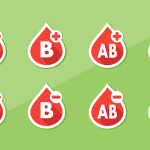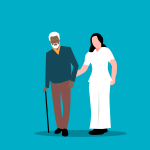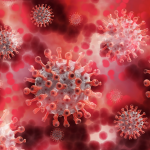By now, you have probably seen the headlines asserting that some 13% of Americans have a food addiction to “highly-processed foods.” That number is a result of a poll – not an objective study – but this spotlight provides an opportunity to discuss what we know – and don’t know – about food addiction.
Disease
Coming on the heels of a study of the detrimental effects of gas stoves on indoor air quality and health is a pilot study of how those harmful effects are mitigated by replacing gas with induction stoves. Let’s see what they found.
In 1983 the US Public Health Service recommended that “Sexually active homosexual and bisexual men with multiple partners” refrain from donating blood. In 1986, all gay men were banned from donating blood. In 2013, the AMA stated the ban was “discriminatory and not based on sound science.” Have the bans been completely eliminated? Is the blood supply safe?
Deaths of despair, death from alcoholism, drug overdoses, and suicides have become a consistent explanation for the increasing mortality in middle-aged White males. A new viewpoint calls our attention to the deaths of despair among Native Americans.
Original Antigenic Sin (OAS) is the “tendency of individuals exposed to a given strain of influenza to respond with antibodies that react more strongly to the first strain of influenza they had met in early childhood than to the exposure strain itself.” A new study in Nature tries to unravel the reason for that propensity and tells us something about vaccines and boosters.
Sweden garnered both intense criticism and high praise for its conservative pandemic response. How did the country's COVID-19 outcomes compare to those of the US and other countries? From deforestation to climate change and pollution, headline after headline warns that we're rapidly destroying our planet. These scandalous assertions are out of step with the latest evidence.
Asthma is a significant disease; among children, the prevalence is between 7 and 11%. The exacerbation of asthma by second-hand tobacco smoke is well documented, but as smoking tobacco has declined, smoking wacky weed has increased. What effect has this second-hand smoke had on “the children?”
The most infectious subvariant of the SARS-CoV-2 virus yet discovered is spreading through the U.S., and experts are predicting a January-February surge of COVID cases. A corollary is that we will also have more cases of long COVID, which is worrisome given new findings that long COVID, like acute infections, can be fatal. The best way to avoid long COVID is not to get infected in the first place.
COVID-19 deaths in nursing homes are partly attributable to the staff bringing – and transmitting – the virus to vulnerable patients. That is why the nursing home staff was at the front of the line when vaccines were introduced; and why, when many didn’t rush to sign up, the federal government mandated that they be vaccinated. How did that work out for the staff and patients?
The SARS-CoV-2 virus, which causes COVID-19, is threatening to surge again. In the past few weeks alone, a recent version, XBB.1.5, the most infectious subvariant yet discovered, has quickly spread in the United States. As of the most recent data from the Centers for Disease Control, this variant makes up about three-quarters of all cases in the Northeast and 27.6% nationwide. There is reason to be concerned.
“Drinking eight glasses of water every day can prolong your life for up to 15 YEARS and slash the risk of heart attacks, strokes and dementia, study suggests” Can that be true? The study was all over the media, but even a cursory read shows that drinking water was never measured, and eight glasses a day was never discussed.
Long COVID – the persistence of symptoms long past COVID’s normal recovery – remains in uncharted diagnostic waters. It’s a syndrome of symptoms rather than a specific disease. A new study from China sheds some light on who is at risk, and what symptoms they might have.











